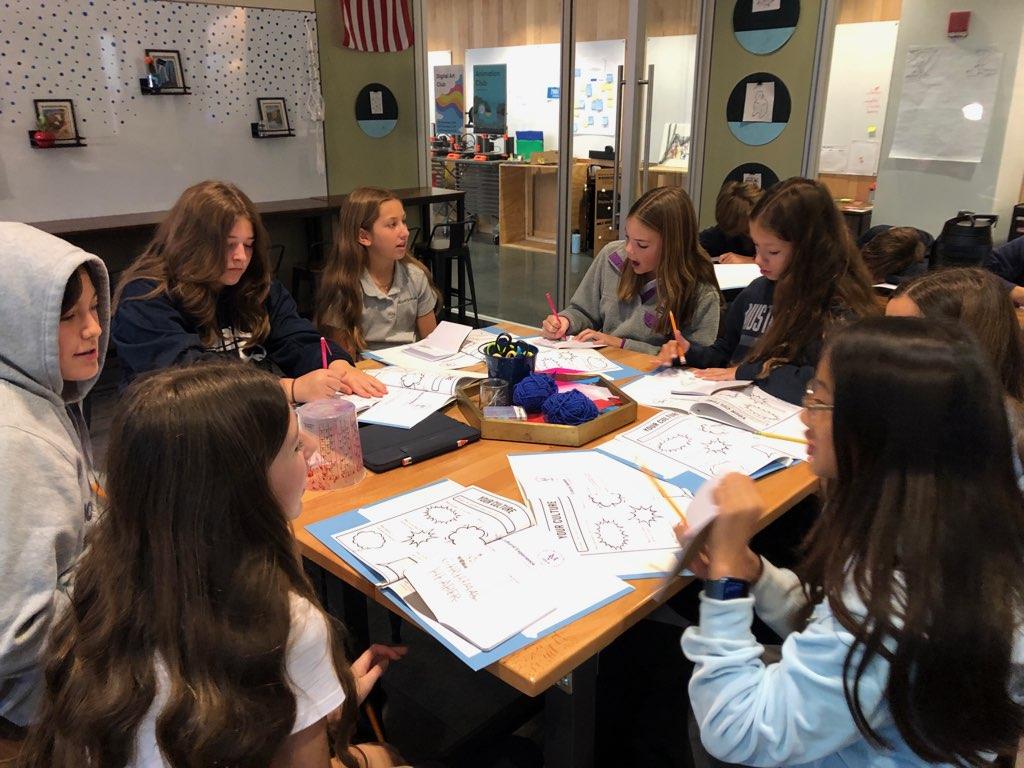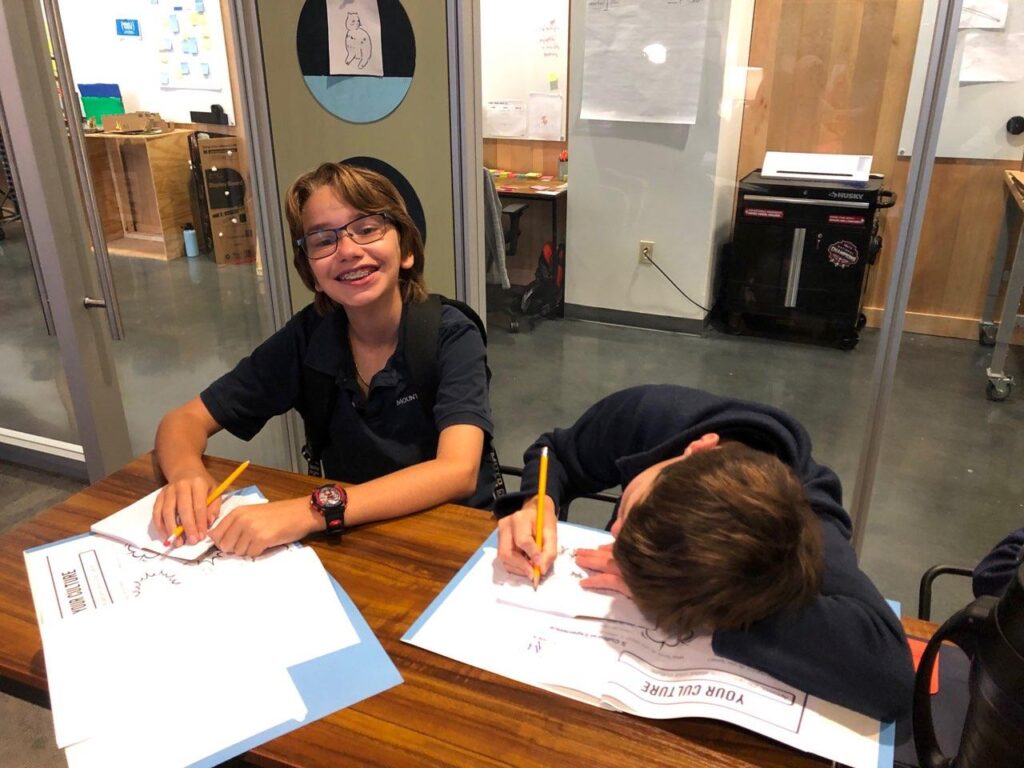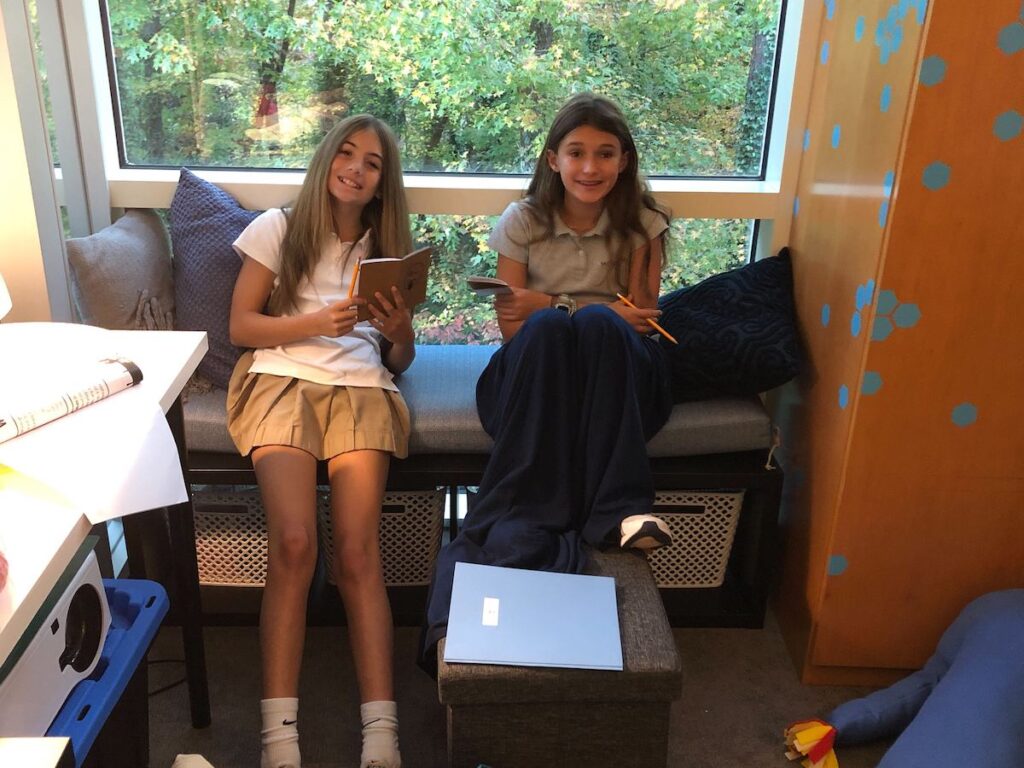How might we develop community and belonging in Middle School? Community time in Middle School is an opportunity for students to hear their peers’ stories and lean into each other’s knowledge and backgrounds. It’s also a time to reinforce Mount Vernon’s mindsets and values as part of a collective commitment to meeting the mission. To support students in developing the skills and attributes necessary for becoming globally competitive and engaged citizen leaders involves exploring stories that widen each student’s worldview.

During the month of October community lessons in Middle School were designed to give students time and space to share their stories and explore those of their peers. The School’s values of love, joy, and peace call for all members of our community to be fully inclusive. We work to achieve this by engaging in dialogue and experiences that prompt reflection and conjure empathy for others. Kourtnay Abernathy, Middle School IDEA Coordinator, partnered with Community Leaders this month to give students a platform in which they could collectively explore the kind of culture they would like to see at Mount Vernon. Some questions community leaders asked their classes were:
- What is culture?
- What is my culture?
- What are the characteristics of culture?
- What is your reflection on what culture means to Mount Vernon?
Students were prompted to think deeper with videos, learning guidelines, and thought-provoking questions to reflect on their and others’ culture and traditions.

The activities demonstrate that students have the same desires when it comes to thinking about what kind of community they want to have at Mount Vernon.
What are students saying about this community-building initiative?
Maya Sharma, Class of 2027 says “I think that everyone is nicer here. I have never felt disrespected because of my culture. I think that this activity showed that people needed to learn more about where they came from and how their ancestors’ cultures tie in with their own.”
Atlas Bierley, Class of 2028 says “I liked it because I have a lot of friends who are from different cultures who have a lot of backstories. It’s a fresh reminder that our backgrounds shouldn’t affect how we treat people. We should just be good to everyone.”
Parker Arnold, Class of 2028 says “When we were talking about struggling with identity, it made me understand it more. I always knew people kind of struggled with it and I think talking about it will make people more aware of how they treat other people.”
Culture and identity are important parts of human development. They are especially important during the years of early adolescence. At this developmental stage, students are working hard to understand where they belong in terms of group identity. Finding one’s place in a positive peer group for Middle School students makes it possible for them to be fully engaged in their learning experiences which is critical to their overall success.

The theme of storytelling will remain a foundational tool of the Middle School experience this year. For example, students will learn about Diwali, one of India’s most important holidays. It celebrates good over evil, happiness over despair, and light over darkness. Stacey Lee, Chief of Inclusion Diversity, Equity, and Action (IDEA) says, “Increasing capacity for accepting difference is a primary goal of IDEA initiatives. Exploration of culture through understanding traditional celebrations such as Diwali is just one avenue we use to meet our mission in the lives of all of our students. Being inclusive involves creating space to share stories as we explore how we might build a community that supports belonging for all.”
